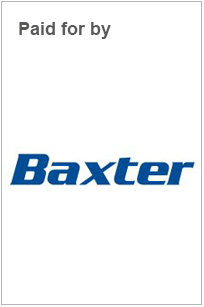The road over the pandemic bridge to the new normal city – with Baxter
 During this period, developing treatment pathways that minimise social interaction and reassure patients will be critical to success. Protocols should be challenged to maximise the use of treatments that can be administered outside of the acute hospital setting or in the home. And this should include early discharge, even if treatments need to continue in the community.
During this period, developing treatment pathways that minimise social interaction and reassure patients will be critical to success. Protocols should be challenged to maximise the use of treatments that can be administered outside of the acute hospital setting or in the home. And this should include early discharge, even if treatments need to continue in the community.
Optimising pathways in this way will not only help throughput, but will protect scarce resources. As part of the phase 2 response to COVID-19, NHS England expects changes in the areas where organisations are incurring necessary and additional COVID-19 expenditure, including remote management of patients, support for stay at home models and hospital discharge programmes.
Baxter has been there to take every reasonable step possible to support our hospitals and healthcare partners during the current COVID pandemic. We are working collaboratively on shared learnings, and steps we can take in partnership, to prepare for a range of future scenarios.Here are just some examples of the support we continue to provide:
Also, using advanced surgical techniques can reduce the need for blood transfusions so reducing the chances of needing an intensive care unit bed.
1Next steps on the NHS response to Covid-19 letter 17 March 2020 page 2. Author Simon Stevens.
UKI/MG234/20-0003 June 2020
Related content
We are excited to bring you a fun packed Eastern Branch Conference in 2025 over three days.
This event is for those that will benefit from an overview of costing in the NHS or those new to costing and will cover why we cost and the processes.